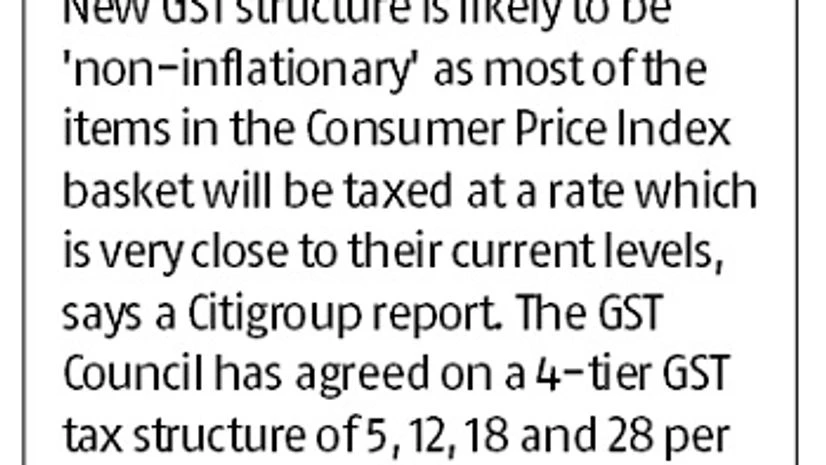The Centre is hopeful of a consensus around 'vertical division' of assessees, one without a turnover threshold, to resolve the issue of dual administrative control under the proposed goods and services tax (GST) regime.
While most states are in agreement over the principle of division in a pre-decided ratio between the two authorities, Kerala, West Bengal and Tamil Nadu have pressed for exclusive state control over those with annual turnover up to Rs 1.5 crore and dual control for beyond that.
Also termed 'horizontal division', this threshold formula would ensure states get control over most assessees. By government data, 88% of assessees are below the Rs 1.5 crore threshold.
"A consensus appears to be evolving around the 'vertical division' of assessees for scrutiny and audit. Negotiations will centre around the ratio of division. We are willing to do less assessment than states," said a central official. The ratio could be 1:2 or 1:3 in favour of states.
Resolution of the issue is needed to prevent harassment of taxpayers. "We can’t have two competing authorities for the same assessees," said the official.
Assam’s finance minister, Himanta Biswa Sarma, told a television channel after the Council meeting on Friday: "When the meeting started, the Council was leaning towards a Rs 1.5 crore threshold but now many states feel that it should be vertical division. We expect the dual control issue to be resolved soon."
Jammu & Kashmir’s Haseeb Drabu said the state would back a vertical split of administrative powers. While the states had earlier agreed to exclusive assessment of manufacturing units with turnover of up to Rs 1.5 crore, they went back on it as the Centre retained administrative control over all 2.6 million service tax assessees.
More From This Section
Finance Minister Arun Jaitley said after the meeting, "We don't want to take a decision in a hurry because, administratively, any mistake on this front could be chaotic."
The finance ministers will have an informal meeting on November 20 to discuss it. “Sometimes ministers in the Council meeting discuss a politically correct stand in the presence of everyone. Informally, they might have a different view," said an official.
Pratik Jain, partner at consultancy PwC, said: "With services also getting split between Centre and States, it is unlikely the Centre would agree on horizontal division. A vertical division on an agreed ratio seems more viable."
GST structure likely to be non-inflationary
New GST structure is likely to be 'non-inflationary' as most of the items in the Consumer Price Index basket will be taxed at a rate which is very close to their current levels, says a Citigroup report. The GST Council has agreed on a 4-tier GST tax structure of 5, 12, 18 and 28 per cent, with lower rates for essential items and the highest for luxury and de-merits goods that would also attract an additional cess. PTI

)
